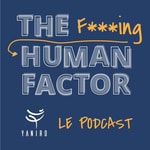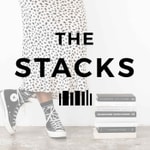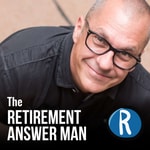Human Restoration Project – Détails, épisodes et analyse
Détails du podcast
Informations techniques et générales issues du flux RSS du podcast.

Human Restoration Project
Human Restoration Project
Fréquence : 1 épisode/16j. Total Éps: 167

Hosted on Acast. See acast.com/privacy for more information.
Classements récents
Dernières positions dans les classements Apple Podcasts et Spotify.
Apple Podcasts
🇨🇦 Canada - courses
06/08/2025#100🇨🇦 Canada - courses
05/08/2025#36🇨🇦 Canada - courses
04/08/2025#33🇺🇸 États-Unis - courses
27/06/2025#77🇺🇸 États-Unis - courses
26/06/2025#67🇺🇸 États-Unis - courses
25/06/2025#96🇨🇦 Canada - courses
28/05/2025#93🇨🇦 Canada - courses
27/05/2025#64🇺🇸 États-Unis - courses
13/03/2025#88🇺🇸 États-Unis - courses
09/03/2025#82
Spotify
Aucun classement récent disponible
Liens partagés entre épisodes et podcasts
Liens présents dans les descriptions d'épisodes et autres podcasts les utilisant également.
See all- https://www.free-stock-music.com
7033 partages
- https://m4bl.org/
536 partages
- https://www.blackvisionsmn.org/
134 partages
- https://youtu.be/y9Aw4EsH_yc
4 partages
- https://twitter.com/tiersaj
9 partages
- https://twitter.com/FritzTesha
7 partages
- https://twitter.com/StrikeDebt
6 partages
Qualité et score du flux RSS
Évaluation technique de la qualité et de la structure du flux RSS.
See allScore global : 63%
Historique des publications
Répartition mensuelle des publications d'épisodes au fil des années.
The Fantasy Economy w/ Neil Kraus
Épisode 155
samedi 28 septembre 2024 • Durée 37:44
Stop me if you’ve heard these before:
American public schools are failing,
American students are falling behind their global peers,
The future of American innovation, economic equality, and global competitiveness depends on schools today preparing students for the job market of tomorrow,
School reform is only tool we have to fix these urgent issues
Each of these sentiments have become conventional wisdom at this point, and they’ve appeared in the platforms of both major American political parties if not explicitly, then through familiar buzzwords: school choice, competition, data-driven accountability, college and career readiness, STEM education, and gaps of all kinds: the skills gap, the achievement gap, and the employment gap, to name a few. And when your only tool is a hammer, all your problems look like nails… But it may also be the case, despite the flaws of public education throughout the nation’s history, that American public schools became “failing schools” exactly when they needed to, to fit the needs of politicians and industry, and to fit schooling into the new economic order that came to dominate the last half century.
At the global level, this narrative even fuels reactionary stories of civilizational struggle and the “decline of The West. As an Italian economist lamented for GIS Reports earlier this year, “There are only two ways Western educational systems can reverse the current trend and offer more appealing prospects: Allowing private schooling to flourish and Bringing about radical reforms in state schooling.”
The most likely outcome, he predicts is a steady decline, writing, “the vicious spiral that links poor education to inequality, social tensions, more government intervention and, finally, low productivity and stuttering economic growth will likely dominate the future of many Western countries for years to come.”
This last line captures what my guest today describes as The Fantasy Economy. Neil Kraus is Professor of Political Science at the University of Wisconsin, River Falls. His most recent book, The Fantasy Economy: Neoliberalism, Inequality, and the Education Reform Movement, describes in powerful detail how exactly our popular, bipartisan conventional wisdom about America’s “failing schools” and the decline of of the American student came to be: as the result of a deliberate project to shift the responsibility for economic precarity and inequality away from industry and policy and place it squarely on the shoulders of educators and schools. “Ultimately,” he writes, “ we must see the fantasy economy for what it is—a misleading, political campaign in the interests of corporations and the wealthy.”
Hosted on Acast. See acast.com/privacy for more information.
The Solutionary Way w/ Zoe Weil
Épisode 154
samedi 14 septembre 2024 • Durée 42:46
A “solutionary” has multiple definitions, one of which reads, “A person who identifies inhumane, unjust, and/or unsustainable societal systems and then develops solutions to transform them so that they do the most good and least harm for people, animals, and the environment.”
Today we are joined by Zoe Weil who has dedicated her work to creating, spreading the word, and teaching what it means to be a solutionary. She has written eight books including her most recent book we’re talking about today, The Solutionary Way. She’s delivered multiple TEDx talks and keynotes around the world on educating to solve the world’s most pressing problems. And she’s the co-founder and president of the Institute for Humane Education, which has been making serious strides in implementing the Solutionary Framework in schools around the country as well as in their own graduate program.
Links:
- Solutionary Public Policy Webinar with Caitie Whelan and Zoe Weil
- The Solutionary Way: Transform Your Life, Your Community, and the World for the Better by Zoe Weil
- The Institute for Humane Education
Hosted on Acast. See acast.com/privacy for more information.
Off The Mark: How Grades, Ratings, & Rankings Undermine Learning (But Don't Have To) w/ Jack Schneider & Ethan Hutt
Épisode 146
samedi 17 février 2024 • Durée 47:04
“Let's start with the bad news.” is how the conclusion to my guests’ book about changing grading practice begins. “No one is coming to save us. No consultant is going to sweep through and fix things for a fee. No new technology, digital, online, or otherwise, is going to change the game.” The game, of course, is school, and the currency of that game is grades.
Jack Schneider is Dwight W. Allen Distinguished Professor in the College of Education at the UMass - Amherst. He is the Executive Director of the Beyond Test Scores Project. Director of the Center for Education Policy. Co-Editor of the History of Education Quarterly, and Co-Host of the Have You Heard Podcast.
Ethan Hutt is the Gary Stuck Faculty Scholar in Education and associate professor at the UNC Chapel Hill School of Education.
Their 2023 book, Off the Mark: How Grades, Ratings, and Rankings Undermine Learning (but Don’t Have To), is a thorough, and at times frustratingly pragmatic, exploration of flawed necessity of the load bearing pillars of “real school” – grades, transcripts, and standardized tests – their origins in our nation’s history, the distorting effects they tend to have on the outcomes and goals of education, why nothing has arisen so far to replace them at scale, and why there are no magic potions: “No one is going to wake up one morning and realize that the answer was staring us in the face all along,” they remind us.
Balancing the real with the ideal, they also chart a path toward the possibility for something different, and like the grand experiment of public schooling itself, it’s something we’ll have to figure out and build together.
Hosted on Acast. See acast.com/privacy for more information.
71: Post-Standardization: Schools for a Free and Democratic Society w/ Dr. William Ayers
Épisode 71
samedi 23 mai 2020 • Durée 32:38
Today I am joined by Dr. William Ayers, a retired education professor at the University of Chicago whose work is rooted in progressive ideology. Ayers was heavily involved in the free school movement in the 1960s, and his work reflects a focus on democratic schooling and building a more free society. Ayers is a prolific author, including writing On the Side of the Child: Summerhill Revisited, Teaching Toward Freedom: Moral Commitment and Ethical Action in the Classroom, To Teach: The Journey of a Teacher, and the recently released "You Can't Fire the Bad Ones!": And 18 Other Myths about Teachers, Teachers Unions, and Public Education.
In this podcast, Ayers and I talk about the opportunity that COVID-19 provides teachers to throw out standardized testing and build a better system. We discuss the College Board, the connection between testing and the financial industry, how testing impacts the culture of a school, and what a classroom without these tests could mean.
Dr. William Ayers, professor of education at the University of Chicago, elementary education expert, education reform activist, author, and researcher.
- “You Can’t Fire the Bad Ones!”: And 18 Other Myths about Teachers, Teachers Unions, and Public Education by William Ayers, Crystal Laura, and Rick Ayers
- Bill Ayers’ Website
- Bill Ayers | Teaching And Organizing for Social Justice | University of Oregon Lecture
- Headline: Author Bill Ayers on the Eighteen Myths of Public Education
Hosted on Acast. See acast.com/privacy for more information.
70: Taking Charge with Teacher Action Research w/ Etta Kralovec
Épisode 70
samedi 16 mai 2020 • Durée 25:22
Today I am joined by Dr. Etta Kralovec, a professor of education at The University of Arizona, who focuses on context, research gathering, and teacher preparation, specifically with a focus on US/Mexico border communities. Dr. Kralovec is a widely accomplished author and researcher, with works such as The End of Homework and Schools That Do Too Much, a Fulbright Scholar, school leader and founder, and international expert.
In this podcast, we talk about the practice of teacher action research, where educators perform qualitative studies of what they're doing - essentially to figure out if it works. As you'll soon hear, the power of teacher action research lies in the process of reflecting and analyzing the information. Further, teacher action research is the cornerstone of Human Restoration Project's upcoming microcredentialing program.
Dr. Etta Kralovec, professor of education at The University of Arizona, author, researcher, Fulbright Scholar, and expert on teacher action research with a specific focus on US/Mexico border communities.
- YouTube: Overview of Dr. Kralovec’s recent work
- Schools That Do Too Much by Etta Kralovec
- HRP Book Review: The End of Homework by Etta Kralovec and John Buell
*Dr. Kralovec has graciously provided her author email, endhomework@gmail.com - to answer any questions about teacher action research and how it can work for you!
- Teacher’s Aid: Homework? Really? That’s So 1950s
- High Tech High Unboxed: Continuous Improvement: Teacher Induction
Hosted on Acast. See acast.com/privacy for more information.
69: Social Justice, Gender Identity, and Liberatory Pedagogy w/ sj Miller
Épisode 69
samedi 9 mai 2020 • Durée 28:39
Today I am joined by Dr. sj Miller, an associate professor of teacher education at Sante Fe Community College. sj is an expert on social justice and challenges the gender and gender identity binary (e.g. trans*+, gender dynamic/fluid youth.) sj is an award-winning and well-published author, including writing for The International Journal of Transgenderism, International Journal of Critical Pedagogy, and the Teachers College Record. You can view sj's speech on gender identities and young people via TEDMED.
In this podcast, we talk about how schools can best serve nonconforming gender identities, how classrooms can be liberated for social justice, and the mistakes we make in professional development and addressing the complex topic of gender in schools.
Dr. sj Miller, associate professor of teacher education, expert on gender identity justice and social justice, and published author/researcher.
- sj Miller’s recently published book, about Gender Identity Justice in Schools and Communities
- sj Miller’s website
- sj Miller’s TEDMED talk: “Why gender identity justice matters for everyone”
Hosted on Acast. See acast.com/privacy for more information.
Bonus: Summit: Teacher Powered Schools w/ Amy Junge, Liz Seubert, and Taryn Synder
jeudi 30 avril 2020 • Durée 58:28
Interested in using this opportunity for professional development credit? See our template for administrators. Consider running this event past your administrative team prior to completing.
In this interactive professional development session, we will talk about how teachers can create their own public, private, and charter schools through the Teacher Powered Schools organizational structure. We are joined by three amazing guests:
Amy Junge, Director of the Teacher Powered Schools initiative, co-author and researcher of Trusting Teachers with School Success: What Happens When Teachers Call the Shots with Kim Farris-Berg and Ed Dirkswager.
Liz Seubert, a co-founding teacher at Wildlands School, a public tuition-free, PBL-based charter high/middle school in Wisconsin, 2016 Teacher Ambassador for Teacher Powered Schools, and co-author of An Improbable School: Transforming How Teachers Teacher & Students Learn.
Taryn Snyder, a 3rd grade teacher at Boston Teacher Union Pilot School, a public tuition-free K-8 school in Massachusetts, founded as a partnership between the Boston teacher’s union and local schools.
This discussion will span across K-12, directing educators on the Teacher Powered Schools movement, how to get involved, and clarifying questions to start teachers on their journey to potentially envision their own schools!
Hosted on Acast. See acast.com/privacy for more information.
68: Grassroots, Teacher Powered Schools w/ Liz Seubert
Épisode 68
samedi 25 avril 2020 • Durée 31:05
Today I am joined by Liz Seubert, a teacher at the teacher run and operated school, Wildlands in Fall Creek, Wisconsin. Wildlands is a small, tuition free 7-12 public charter school, which is affiliated with the Teacher Powered Schools movement. Liz, along with her coworkers, operate the entire school without an administrative body.
In this podcast, we will delve into the operation of Wildlands, how it was founded, and what teachers can do to become involved in Teacher Powered Schools. If you're listening to this podcast before April 29th, make sure you sign up for our Summit with Liz and two other experts from Teacher Powered. There, they'll be able to answer your questions and start your own journey to a grassroots revolution in education. In our opinion, teachers being treated as professionals, and being able to connect with students in small school environments, is a realistic and pragmatic way to organize progressive education for all students.
I highly recommend you visit Teacher Powered Schools at teacherpowered.org. Their network supplies a ridiculous amount of resources, materials, and help channels to help teachers navigate starting their own school.
Liz Seubert, co-founding teacher at Wildlands School, a 2016 Teacher Ambassador for the Teacher Powered Schools Initiative, and co-author of An Improbable School: Transforming how Teachers Teach & Students Learn.
Hosted on Acast. See acast.com/privacy for more information.
67: Learning From Unschooling During Isolation w/ Tiersa McQueen
Épisode 67
samedi 11 avril 2020 • Durée 29:53
Our podcast today features Tiersa McQueen, an avid homeschooler who raises her four children in an unschooling philosophy. Tiersa and her husband both work opposing shifts to allow this to occur. Tiersa frequently posts on her Twitter and Instagram handles as MotherBae, critiquing traditional education, offering support as an unschooler, and demonstrating how we can adopt unschooling among our children. I invited Tiersa to talk about this pedagogy and offer advice for educators who are now supporting their students in their home environments, as well as many who are raising their own children alongside this.
Tiersa McQueen, avid homeschooler and unschooler who posts under the handle @MotherBae to critique traditional education and represent Black married moms who unschool
- HRP COVID-19 Resources and Charities
- Tiersa McQueen on Twitter (@tiersaj)
- Tiersa McQueen on Instagram (mother_bae_i)
- Tiersa McQueen on YouTube
FURTHER LISTENING
Hosted on Acast. See acast.com/privacy for more information.
Bonus: Summit: Play and Outdoor Learning w/ Abe Moore
dimanche 29 mars 2020 • Durée 01:01:12
Interested in using this opportunity for professional development credit? See our template for administrators. Consider running this event past your administrative team prior to completing.
This discussion will talk about how we can bring about play-based learning in and out of classroom. This conversation will center on experiential learning and student voice, with some credence to how this can integrate to the COVID-19 crisis.
Abe Moore is a primary teacher in Adelaide, Australia, and has worked on brilliant projects, including building an entire play space with his students.
How can we build spaces and co-create curriculum with our students to encourage play, especially in the outdoors?
What activities, games, and/or projects can we undertake with individuals or small groups of students?
What does a play-based outdoor curriculum, classroom, and community look like?
Resources mentioned in this episode can be found here: https://docs.google.com/document/d/1qgePI6nTaD2ihJdYHCJuhPgsg38q3RD4MhIyRbp1qW4/edit?usp=sharing
Hosted on Acast. See acast.com/privacy for more information.









